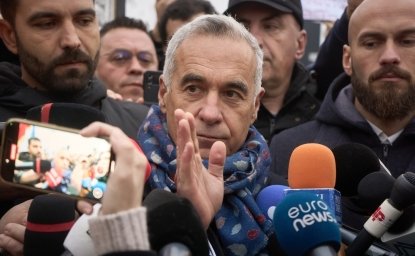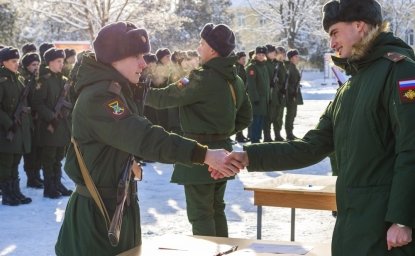
A blog of the Kennan Institute
Whatever the domestic logic behind U.S. president Donald Trump’s attempts to dismantle the Iran deal, his moves are bound to have major international repercussions. For the second time in recent months, the White House’s actions go against the grain of what has been achieved through careful balancing of the interests of other global players.
Last August, to the surprise of other countries busy deterring and containing North Korea, the U.S. president started a war of words with North Korea’s dictator Kim Jong-un. This time the target is a multilateral agreement aimed at preventing Iran from acquiring nuclear weapons. With all its imperfections, the Joint Comprehensive Plan of Action (JCPoA), as the Iran deal is formally known, is a working agreement with verifiable compliance.
In fact, one would think, the kind of international diplomacy that led to the conclusion of the Iran deal would be the way to go for a post-bipolar world. Both the U.S. and Russia worked on the agreement, putting aside the many issues that divided them. The JCPoA is living proof of the fact that the international community is capable of putting together a focused deal while remaining conscious of everyone’s divergent security agendas. The agreement was endorsed by all five permanent members of the UN Security Council plus Germany and the European Union.
None of this being an issue in American domestic politics, Trump last Friday followed up on his promise to his political base to backtrack on the Iran nuclear deal. He did not terminate U.S. participation in the agreement but refused to certify Iran’s compliance with its terms. Essentially, President Trump left it for the U.S. Congress to decide, within sixty days, whether to reimpose sanctions on Iran.
President Vladimir Putin’s spokesman Dmitry Peskov said the possible U.S. withdrawal from the deal “will have utterly negative consequences.” Tehran will walk out of the agreement if the U.S. does, Peskov told reporters. The Chinese state councilor Yang Jiechi urged the U.S. to preserve the deal.
All other signatories have expressed their concerns about a possible U.S. withdrawal and stated their commitment to the agreement. French president Emmanuel Macron, U.K. prime minister Theresa May, and German chancellor Angela Merkel issued a joint statement reiterating that their three governments were committed to ensuring the JCPoA is maintained.
“It is not a bilateral agreement. It does not belong to any single country. And it is not up to any single country to terminate it,” the EU’s foreign policy chief Federica Mogherini said.
The consensus among all sponsors of the deal is impressive, but the U.S. role in it is crucial: it will collapse without the U.S. being part of it. Any new significant sanctions imposed by the U.S. will be taken by Tehran as absolving it of its commitments under the JCPoA. The U.S. sanctions regime is critically important: lifting the sanctions was the whole point for Iran to go along with the deal.
“If the Congress finds that new sanctions are in order not in conjunction with Iran’s nuclear program but let’s say because of its missile program that’s not covered by the deal, Iran will lose all incentives to stay in compliance,” Fedor Lukyanov, editor in chief of Russia in Global Politics, said in an interview on Friday. “Once major sanctions are back in place, regardless of their stated cause, Tehran will find few reasons to keep its commitments under the nuclear deal. I think that [White House actions] are meant to force Iran into withdrawing from the deal. The U.S. will then throw up its hands in dismay and accuse Tehran of walking out of the agreement. This is pretty clear.”
The Russians, Europeans, and Chinese will then have to deal with an Iran that is back to where it was before the deal: building a nuclear weapon. Even if the JCPoA remains in place for the foreseeable future, the cracks in the transatlantic relationship will widen. Germany, France, the UK, Russia, and China, whatever their disagreements, will be compelled to take more responsibility for regional and global security.
“It’s imperative that Europe sticks together on this issue,” the outgoing German foreign minister Sigmar Gabriel, a Social Democrat, told the RND German newspaper group. “We also have to tell the Americans that their behavior on the Iran issue will drive us Europeans into a common position with Russia and China against the USA.” “Trump’s recent actions Re: DPRK & Iran make other players from GER [Germany] and FR [France] to China & Russia step up role in managing security across Greater Eurasia,” Carnegie Moscow Center’s director Dmitri Trenin wrote on Twitter.
This is a tall order. There are still few examples of European leaders being able to get their act together and deal with a security issue without the U.S. in the picture. One example is France’s Operation Serval, in Mali, supported by many African nations, Europeans, and the U.S., and endorsed by the UN Security Council.
Bringing in Russia would be harder. The U.S. sanctions power is heavy: Europeans may wish to be able to manage security with Russia on board, but a lot of the carrots and sticks that make agreements worthwhile or worthless are in Washington. And, of course, the EU has its own issues with Russia’s behavior in Ukraine. Still, America standing aloof from inclusive international agreements may over time help bridge the differences that exist between Europe and Russia, on the one hand, and China and Russia on the other. It is already happening at the eastern end of Greater Eurasia. Russia and China, despite mutual mistrust and gaping non-parity in economic might, are working to align their policies in the region.
Author

Editor-at-Large, Meduza

Kennan Institute
The Kennan Institute is the premier US center for advanced research on Eurasia and the oldest and largest regional program at the Woodrow Wilson International Center for Scholars. The Kennan Institute is committed to improving American understanding of Russia, Ukraine, Central Asia, the South Caucasus, and the surrounding region though research and exchange. Read more

Explore More in The Russia File
Browse The Russia File
In Search of Russia’s Digital Trace in Romania’s Political Crisis

With Syria’s Collapse Russia’s Regional Power Play Disintegrates

Putin's Strategy Tests Europe's Defense Limits

